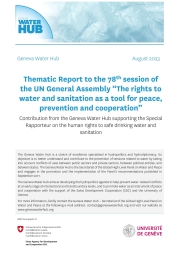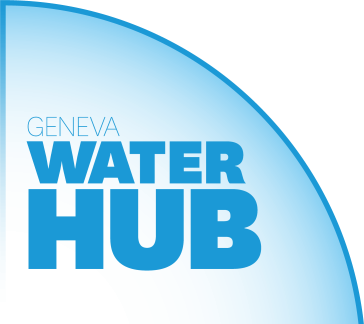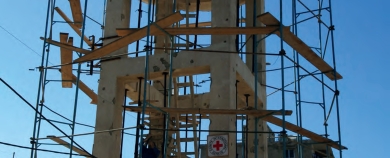
Geneva Water Hub contribution to the Special Rapporteur on the rights to water and sanitation's thematic report to the 78th session of the UN General Assembly "The rights to water and sanitation as a tool for peace, prevention and cooperation"
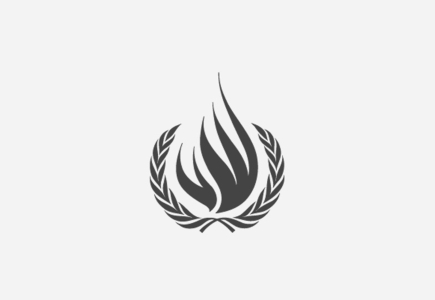
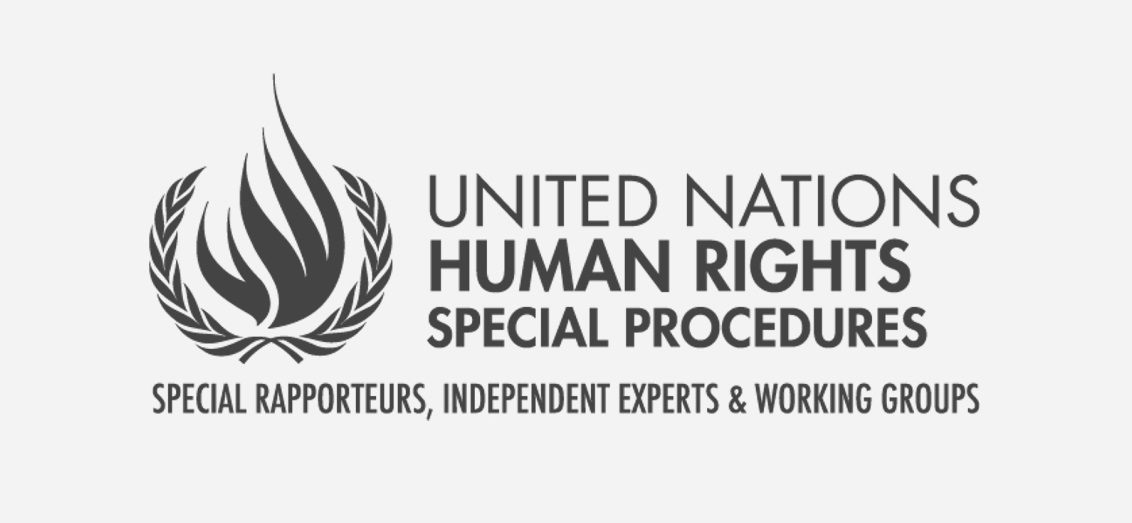
Over half the world's population depends on transboundary aquatic ecosystems, making their management critical for global peace and security. This population's access to safe drinking water depends directly on the state of these aquatic ecosystems. Toxic or insufficiently treated wastewater discharges can erode or break the potability of water downstream. As a result, the actions taken in one country can have significant implications for people in other countries sharing the same aquatic ecosystems. When States fail to protect their river basins and aquatic ecosystems, social or inter-territorial conflicts may occur over scarce resources involving communities, productive sectors, and private actors. In the case of transboundary ecosystems, these conflicts can have detrimental effects on relations between countries.
Besides, as competition for access and allocation of water resources is growing steadily, it could also spark disputes and, at times, escalate into violent conflicts. And during conflicts, damage to water systems often hamper access to drinking water and sanitation services.
Water diplomacy provides an opportunity to transform these potential conflicts and their impact on human rights to water and sanitation into opportunities for cooperation between communities and states, including on transboundary water resources. It promotes the idea of turning water from a cause of conflict to an instrument of peace. Water for peace means promoting equitable distribution of good quality water through robust legal, institutional and policy frameworks prioritising human dignity, fairness, inclusivity and greater social cohesion, along with sustainable use and effective management. In this regard, the human rights to water and sanitation can play a crucial role by guiding equitable transboundary water agreements or arrangements and by opening up space for dialogue during and after armed conflict.
On the 19 October 2023, the UN Special Rapporteur on the rights to water and sanitation presented his report “The rights to water and sanitation as an argument for peace, twinning and cooperation” to the Third Committee on “Social, Humanitarian and Cultural Issues” of the UN General Assembly. In his report, the UN Special Rapporteur on the rights to water and sanitation agrees with the views of the Geneva Water Hub in his understanding of “water for peace”. Mentioning the Geneva Water Hub’s submission, the UN Special Rapporteur notes that the concept of “water for peace” should promote “equitable distribution of good-quality water through robust legal, institutional and policy frameworks prioritizing human dignity, fairness, inclusivity, greater social cohesion, sustainable use and effective management » (paragraph.6).
The entire of the Geneva Water Hub's contribution to the Special Rapporteur is available below. Other contributions can be found on the OHCHR website.
The Report of the Special Rapporteur will be presented in New York before the Third Committee on 19 October 2023. The report is available here. The full schedule of the Third Commitee is available here.
The Geneva Water Hub's contribution to the Special Rapporteur
